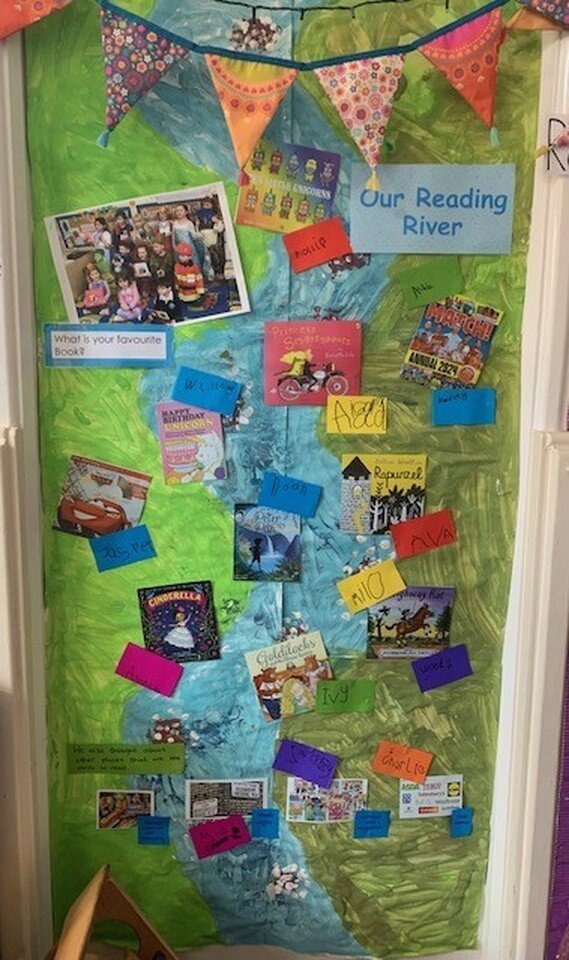
At Ludwell, we believe that the skills of an Author: reading, writing and speaking and listening; provide the foundations for pupils' achievement throughout the whole curriculum and all other areas of learning for now and the future.
As readers, we want our children to be able to read fluently with a good understanding. It is our intention to build positive reading habits so that the children read often, to enable them to build and acquire knowledge and simply for pleasure and enjoyment. We aim to help children build a good range of vocabulary, grammar and conventions across a range of genres. We want children to develop a love of reading and an aspiration that they too, can become authors, taking inspiration from the rich and literary heritage they explore and grow to appreciate.
As authors, we want our children to be able to write clearly, accurately and coherently. They will be skilled in their ability to plan, review and evaluate their own writing. Furthermore, it is our intention to inspire children to write for a range of purposes and acquire a good knowledge of and ability to use a range of vocabulary, grammar and writing conventions. We aim for all children to approach their writing through the eyes of an author, loving reading and approaching writing with confidence and determination.
‘Being an Author - Reader ’ Curriculum Implementation
- Read Write Inc is the approach we use to teach synthetic phonics and early reading.
- We ensure books sent home are carefully matched to the children’s developing phonic knowledge and decoding abilities.
- Guided reading sessions provide the children with opportunities to develop word reading and comprehension skills, incorporating all strands of reading comprehension using the VIPERS questioning model. Whole class guided reading is interwoven with carousel activities.
- We are developing our use of 'Quality texts' and developing our curriculum to ensure they are used as a lead into many writing opportunities where new vocabulary can be learnt and applied and whole class texts are shared with the children to allow time to listen to and enjoy stories.
- Ensuring that reading is modelled as an access tool to many other states of being, across the curriculum e.g. being able to read a source of evidence as a historian
- Vulnerable groups and those needing additional reading support are identified by class teachers and reading interventions are put in place to support the development of their reading. This may be small group comprehension work or additional daily reading to develop fluency and build confidence. Purchases of lower level, older interest books have been bought to support our less confident readers in KS2.
- Regular Story Time or ERIC time (Everybody Reading In Class) is planned into the school day, allowing the teachers to model and promote their own love of reading
- Reading is celebrated through events such as World Book Day, local library visits and creative activities
‘Being an Author - Writer ’ Curriculum Implementation
- A desire to write for purpose and pleasure is fostered in the foundation stage by using role play, mark making in an engaging writing area (indoor and outdoor) and encouraging child led writing opportunities.
- RWI provides a systematic approach to developing children’s spelling skills, word and sentence awareness. Sentence structure and ordering sentences are taught progressively.
- We are developing the teaching of writing through the use of a quality texts, which exposes the children to inference, high-level vocabulary, a range of punctuation and characterization. Each text is purposefully selected in order to promote a love of reading, engagement and high-quality writing from each child.
- Pie Corbett’s ‘Talk for Writing’ approach underpins our writing curriculum to ensure the writing process is visible, carefully modelled and scaffolded consistently by the whole teaching team. The children learn the ‘mechanics’ of an excellent model before moving on to the innovate stage where they are guided to adapt and apply the features of the text explored. Eventually, the children are equipped with the right tool kit to invent their own excellent piece of writing.
- Clear progression of writing objectives, matched to the National Curriculum.
- Explicit time is spent by the teacher and children to plan (boxing up strategies/vocab vaults), review and evaluate their writing (Purple Polishing Pen).
- Writing is celebrated across the school with displays of high-quality writing along with sharing successes for the children in our celebration assemblies.
- Classroom working walls provide a scaffold to the learning intention and wider writing process.
- Being committed to school improvement work
‘Being an Author’ Curriculum Impact
- The vast majority of our pupils enjoy reading and are exposed to a broad range of texts and authors.
- Our readers are successful in their ability to decode and comprehend the texts they explore.
- Pupils have a good range of vocabulary that they are able to apply in their writing.
- Pupils have a good knowledge of how to adapt their writing for different purposes and audiences through the development of writing 'toolkits' over time.
- Pupils will have a solid foundation in spelling and have a toolkit of different strategies to support the continual learning of their spelling after they leave us.
- Pupils are able to identify, use and apply grammatical features in their writing effectively across the curriculum.
- Pupils will make good progress either in line or above national expectations.

















